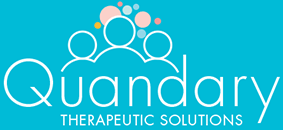Do you ask questions during the session?
No I don’t, I reflect what is happening e.g. ‘the dinosaur is really angry with the tiger today’ or ‘you seem to be moving very slowly’. Reflection enables the children to acknowledge and understand what is happening or how they are feeling. They may not realise this themselves but if the therapist reflects it, it may help them realise it is happening.
How do you find out what is wrong if you don’t ask questions?
This is play therapy and as play is a child’s natural way of communication, we don’t need to talk.
Feelings and concerns can be expressed through play, without words. As a child plays, patterns and feelings may emerge and that enables the child to process problems and develop positive coping strategies.
Why can’t my child bring his favourite toys from home?
Toys from home may evoke certain memories or feelings whereas the toys provided are neutral. So if the play evolves and something bad happens to a neutral toy – that is okay. Sometimes toys get broken or damaged during play. It is not the child’s fault but if that happened to a ‘favourite’ toy, it may be more difficult for a child.
Look at the mess! You must tidy it up before we leave! (Parent/carer to child on seeing the room after the session.)
Mess is a positive sign that children are working through their issues. It is important for the child to know that it is ‘okay’ to make a mess if they need to and the play therapist will deal with it. Children realise quite quickly that play therapy is not like home or school. There are very few rules and the play therapist is not their parent or their teacher. They understand that it is a time for them to challenge/investigate/explore their feelings and so they can make a mess and leave it for the play therapist to clean up.
Why can’t the children take their creations home after each session?
Children have a ‘special box/folder’ for their creations. These creations are kept safe by the play therapist until the end of the intervention. One of the reasons for this is it is important for the child to have the chance to look at their creations throughout their intervention – if they wish to do so. Another reason is, it is a way for the therapeutic relationship to develop as the children put trust in the play therapist to keep their creations safe.
Did you enjoy that/ did you have a good time? (Parent/carer asking child.)
This is a natural parental question and usually it would be fine to ask but I ask parents not to ask this after children’s sessions. There are a couple of reasons:
- Sometimes sessions are difficult for the child – not all play is happy play.
- Children may be working through quite difficult issues and not want to respond to this question. The parent may not think the issue is as important as the child does but as adults we have to acknowledge that what we think are trivial issues may be quite daunting for a child.
What do you say? (Parent/carer to child as they are leaving.)
This is also a natural parental question. After a session, children do not need to thank the play therapist or even say goodbye. Firstly, they are the ones who have been doing all the hard work dealing with their problems, the play therapist has been their witness and kept them safe. Secondly, the therapeutic relationship is such that neither the child nor the therapist has to ingratiate the other. As the play therapist accepts the children as they are without judgment or expectation, the children do the same. So there is no need for any thanks.
